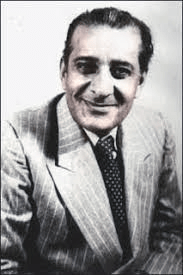Born in 1895, Malik Ghulam Muhammad belonged to a middle-class family from Mochi Gate, Lahore. His childhood was spent in the walled city of Lahore and thus the impact of pure Lahori culture was very much visible on his personality. After graduating from Aligarh University, Ghulam Muhammad joined Indian Accounts Service. Initially he served in the Railway Board and then during the War he worked as the Controller of General Supplies and Purchase.
During the First Round Table Conference, Ghulam Muhammad represented the Nawab of Bhawalpur. He also worked as the Financial Advisor to the Nizam of Hyderabad. When Liaquat Ali Khan became the Finance Minister in the interim Government, Ghulam Muhammad helped him in the technical affairs. Ghulam Muhammad also assisted him in preparing the historical “poor man’s budget”.
When Pakistan came into being in 1947, Ghulam Muhammad was inducted in the first Cabinet of the country as Finance Minister. As a Finance Member in the Cabinet, this economic wizard helped the country in the era of financial crises and due to his personal relations with the Nizam of Hyderabad, he persuaded him to give financial assistance to the newly born Pakistan. It was on his initiative that Pakistan organized International Islamic Economic Conference in Karachi from November 26 to December 6, 1949. Finance Ministers of all the Muslim Countries participated in the Conference. In his address, Ghulam Muhammad gave the idea of the establishment of an economic block of the Muslim countries.
Liaquat Ali Khan, during the last days of his rule as well as of his life, decided to remove Ghulam Muhammad from his Cabinet due to his bad health. But the death of Liaquat turned the tables for Ghulam Muhammad. When Khawaja Nazimuddin resigned as Governor General to become the Prime Minister, Cabinet elected Ghulam Muhammad as the third Governor General of Pakistan. After assuming the charge as Governor General, Ghulam Muhammad started dominating the affairs of the country and Khawaja Nazimuddin merely became a powerless Prime Minister. When Khawaja Nazimuddin and his Cabinet tried to challenge Ghulam Muhammad’s authority, the latter, with the support of bureaucratic and military leadership, planed a conspiracy against the Cabinet. He used his discretionary powers under the Provisional Constitution, which provided that the Prime Minister held office during the pleasure of Governor General, and dismissed Nazimuddin’s Ministry.
Ghulam Muhammad helped Muhammad Ali Bogra, the then Ambassador of Pakistan in the United States, in becoming the next Prime Minister. In October 1954, Constituent Assembly of Pakistan amended the Constitution, denuding the Governor General from his discretionary powers under which he dismissed Khawaja Nazimuddin’s Government. Ghulam Muhammad acted immediately and dissolved the Constituent Assembly. Maulvi Tamiz-ud-din, the President of the Constituent Assembly, challenged the decision in the Sindh High Court. The court gave verdict in favor of Maulvi Tamiz-ud-din, but the Supreme Court reversed the decision of Sindh High Court.
Due to the attack of paralysis, Ghulam Muhammad went on a two month’s leave, and was eventually removed by the acting Governor General Iskander Mirza. Ghulam Muhammad died in 1956.
This article was last updated on Sunday, June 01, 2003






